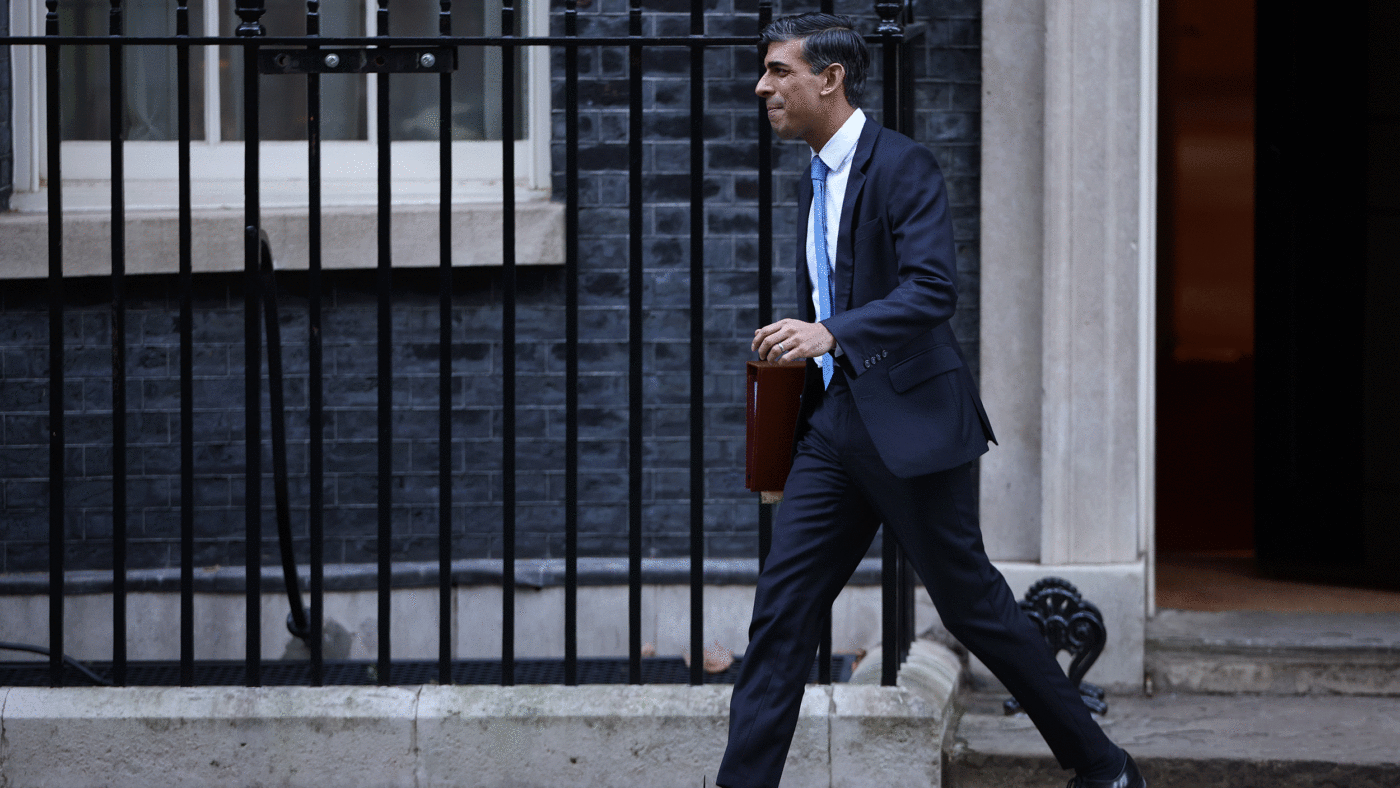To howls of anguish from the constitutionally illiterate, Rishi Sunak last night authorized the first military intervention of his premiership. The UK joined the United States in launching airstrikes against Houthi military facilities in Yemen.
Yesterday’s attack was hardly surprising. Asked about potential strikes earlier this week, Grant Shapps, the Defence Secretary, offered a studiously ambiguous ‘watch this space’. Britain has joined the United States and ten other nations in last week warning the Houthis that they would ‘bear the responsibility for the consequences’ of their continuing assault on shipping in the Red Sea.
Using Israel’s war in Gaza as their justification, the Yemeni militant group has so far launched 27 small-scale raids or missile attacks on vessels in the Bab-el-Mandeb strait between the Arabian Peninsula and the Horn of Africa. This has disrupted trade through the Suez Canal to an extent unseen since it was blocked by the Ever Given container ship back in 2021.
The Canal handles between 12 and 15% of world trade. Container ships that would usually travel through it – constituting around a fifth of the world’s total – are being routed around the Cape of Good Hope instead. This adds 3,000 nautical miles and almost two weeks to their trips. Freight costs between Europe and Asia have spiked by 163% since December.
As well as threatening the principle of the freedom of the seas and disrupting trade, these attacks could reopen Europe’s energy crisis just as the continent teeters on the edge of a recession. The US and her allies could not allow this to go unchallenged. Pax Americana has some life in it yet.
Although eyebrows will be raised in Washington by a stealth attack finding itself briefed to British newspapers beforehand, Sunak should be praised for his response. Brushing off the usual whingeing from the Lib Dems and the SNP, the Prime Minister swiftly briefed the Cabinet, Keir Starmer, and Lindsay Hoyle in time for the RAF to begin operations just before midnight.
Sunak was only 22 when the Iraq War began. Having observed from afar repeated failed experiments in Middle Eastern nation-building by the US and UK, the Prime Minister must be reassured by the specific, limited, and unambiguous nature of last night’s strike. Pressuring a slave-owning militia to desist from threatening Western interests is hardly unreasonable.
It is also characteristic of his broader foreign policy. Whereas Boris Johnson and Liz Truss paid homage to the empty cult of ‘Global Britain’, Sunak’s approach has entailed pragmatically engaging with our immediate strategic interests based on a realistic assessment of Britain’s abilities.
As Aris Roussinos has highlighted, Sunak has swapped empty saber-rattling against China for ‘robust pragmatism’ and prolonging the Brexit wars for close cooperation with our European neighbours to defend Britain’s near abroad. Following his predecessors’ vacant Whiggery, Sunak has returned to a traditional Tory ‘Blue-Water’ strategy of limited action to protect maritime and commercial interests.
But this will only take him so far: something made very clear by his visit to Ukraine today. He has announced £2.5bn in aid for Kyiv over the next year, as well as a new long-term agreement to protect the beleaguered country’s security.
Our support for Ukraine has been a source of pride for many, proof that Brexit has not meant Britain stepping back from a leading role in Europe’s security. We were the first Western nation to pledge main battle tanks to Kyiv and send long range missiles. Research by the Munich Security Conference had Ukrainian respondents vote the UK their best performing ally in response to Russia’s invasion.
But Sunak’s financial commitment today did not stretch beyond the coming year: an ominous sign for Ukraine of the direction of travel. Whilst London may remain steadfast behind Kyiv, both Washington and Brussels are struggling to agree to much larger aid packages. The West’s willingness to support Ukraine is waning – even before a Donald Trump return to the White House.
Britain cannot support Ukraine alone. We are no longer a great power. Forced to choose, we would put keeping in with the Americans over propping up Ukraine indefinitely. Yet even by siding with Washington, we cannot escape from expensive open-ended commitments.
The Houthis have successfully fought off attacks from Saudi Arabia and the UAE for almost a decade. Forming a spoke of Iran’s ‘Axis of Resistance’, they can count on Tehran’s continual support in their long war against Riyadh, Tel Aviv, and Washington. Their drones and rockets are much cheaper to resupply than the missiles and jets we are now positioned to continually deploy against them.
Coming as the Royal Navy is taking two existing ships out of service only to free up enough sailors for its expensive new frigates, Britain is biting off more than it can chew. We cannot afford an open-ended conflict in either eastern Europe or the Middle East, even before we return to kidding ourselves that we could play any form of meaningful role in a coming US-China war over Taiwan.
Sunak has no good options. He cannot be seen to shirk our responsibilities to Ukraine or fail to support the US. The Houthis represent an obvious challenge to Europe’s trade and security. But the Prime Minister will fear entangling Britain in a growing regional stand-off between Israel and Iran.
Sunak has ended up like Edward Heath: a struggling technocrat, whose unhappy premiership has been brought even lower by a Middle Eastern crisis. He may have better foreign policy instincts than his two predecessors. But Sunak has been dealt no luckier a hand.
Click here to subscribe to our daily briefing – the best pieces from CapX and across the web.
CapX depends on the generosity of its readers. If you value what we do, please consider making a donation.


